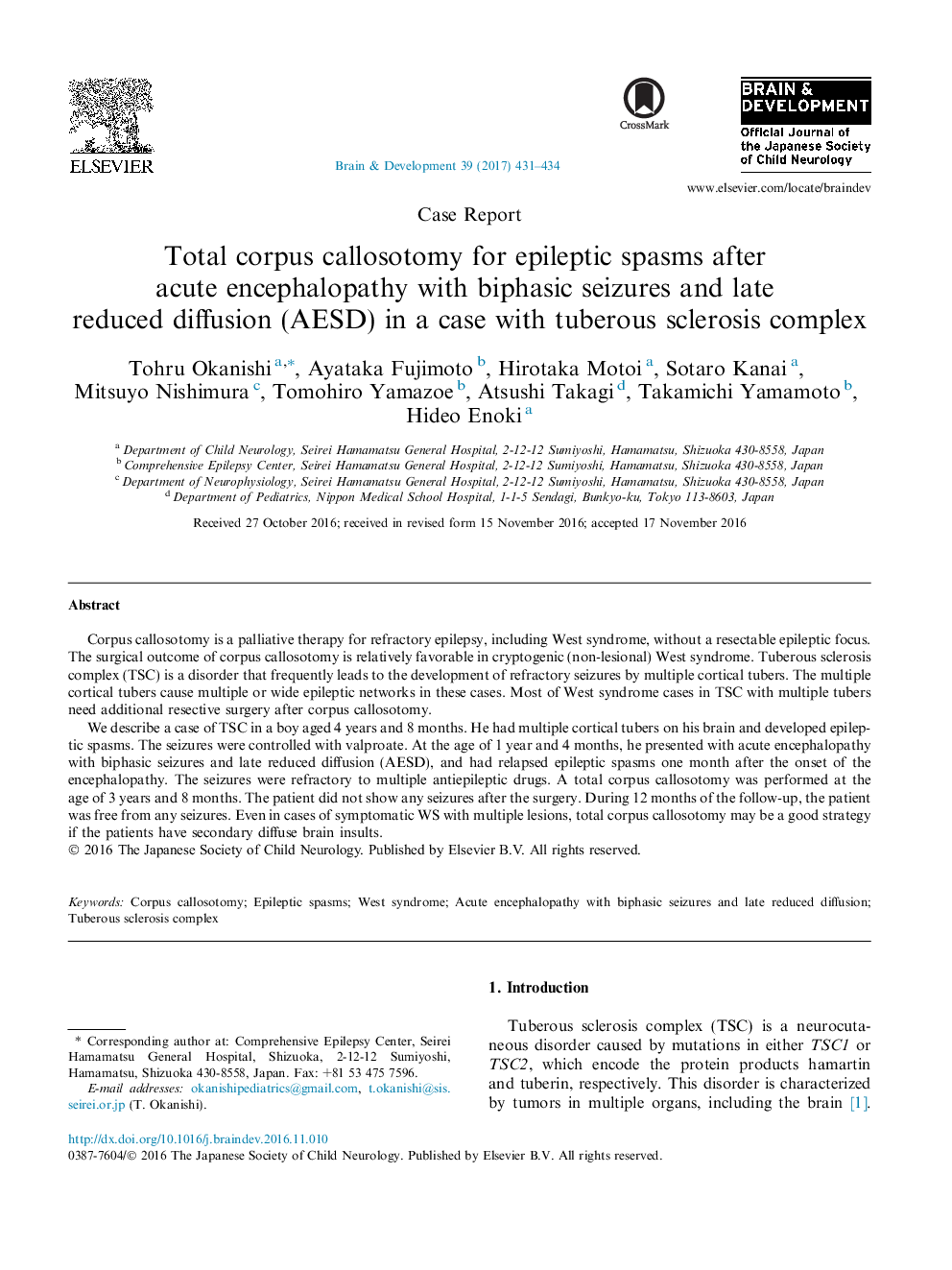| Article ID | Journal | Published Year | Pages | File Type |
|---|---|---|---|---|
| 5626826 | Brain and Development | 2017 | 4 Pages |
Corpus callosotomy is a palliative therapy for refractory epilepsy, including West syndrome, without a resectable epileptic focus. The surgical outcome of corpus callosotomy is relatively favorable in cryptogenic (non-lesional) West syndrome. Tuberous sclerosis complex (TSC) is a disorder that frequently leads to the development of refractory seizures by multiple cortical tubers. The multiple cortical tubers cause multiple or wide epileptic networks in these cases. Most of West syndrome cases in TSC with multiple tubers need additional resective surgery after corpus callosotomy.We describe a case of TSC in a boy aged 4Â years and 8Â months. He had multiple cortical tubers on his brain and developed epileptic spasms. The seizures were controlled with valproate. At the age of 1Â year and 4Â months, he presented with acute encephalopathy with biphasic seizures and late reduced diffusion (AESD), and had relapsed epileptic spasms one month after the onset of the encephalopathy. The seizures were refractory to multiple antiepileptic drugs. A total corpus callosotomy was performed at the age of 3Â years and 8Â months. The patient did not show any seizures after the surgery. During 12Â months of the follow-up, the patient was free from any seizures. Even in cases of symptomatic WS with multiple lesions, total corpus callosotomy may be a good strategy if the patients have secondary diffuse brain insults.
